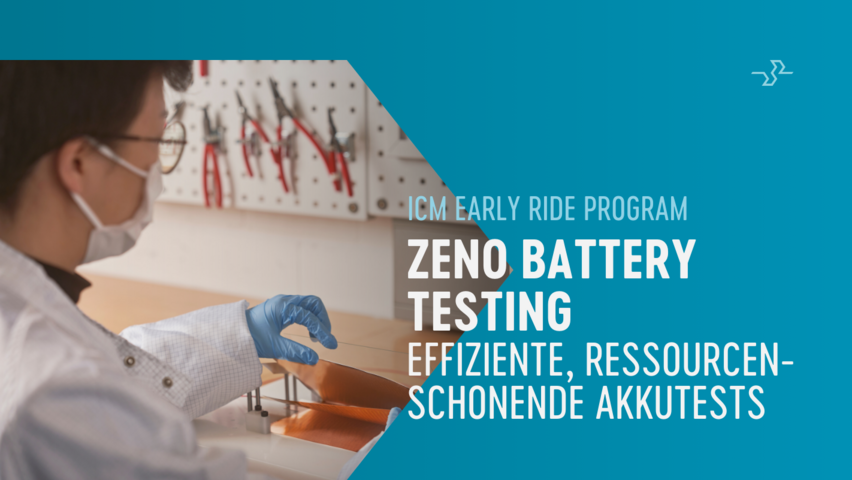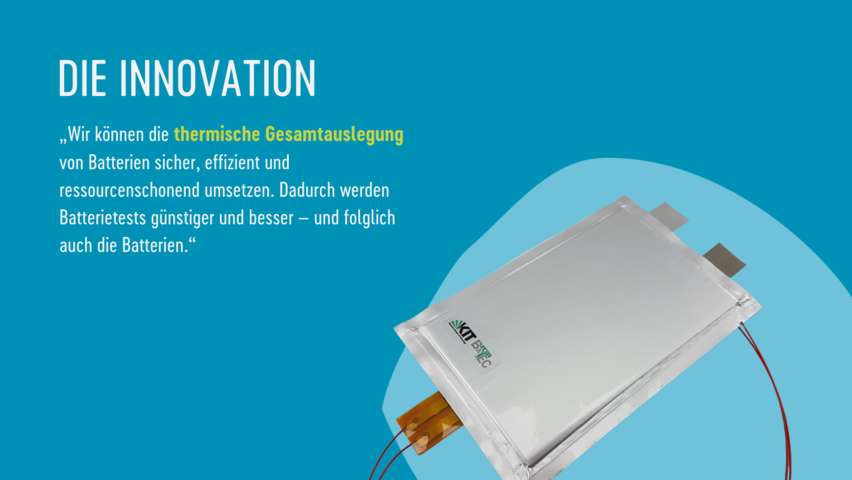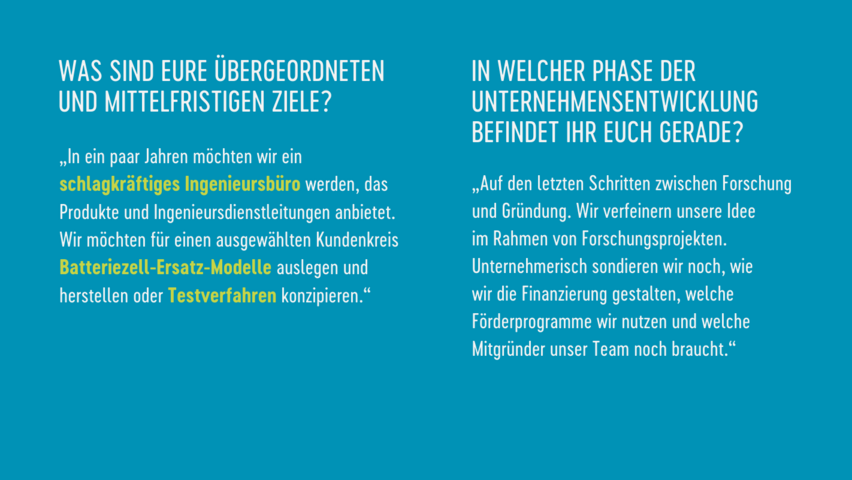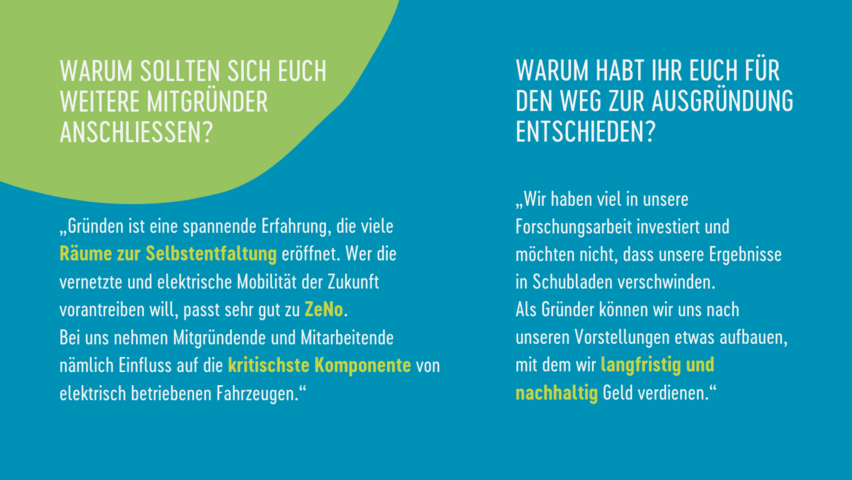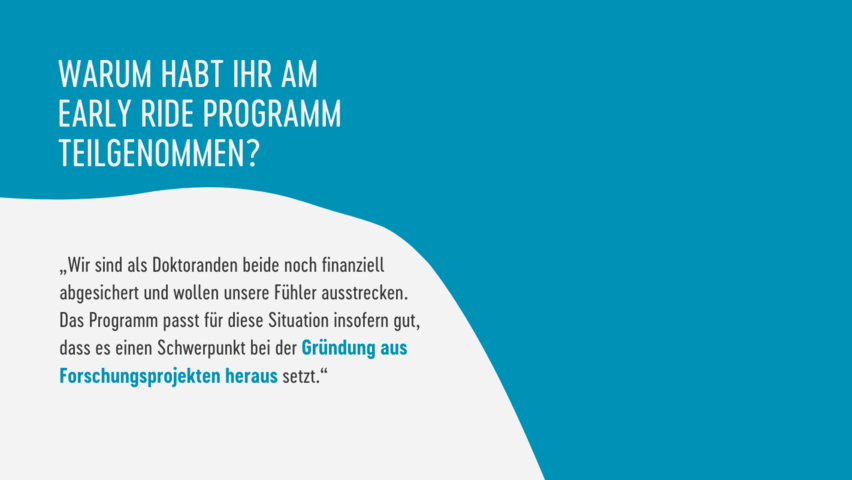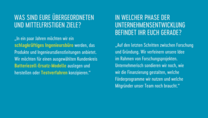Sometimes even extremely brief project descriptions reveal huge potential. Even if it says little more than "Investigate thermal replacement models for batteries". When Marcel Nöller read the call for proposals from the Karlsruhe Mobility Systems profile region in 2019, he immediately thought of the countless possible technical uses of the application. The topic piqued his interest, which is why he took on the project as a research assistant at the IPEK - Institute for Product Development at the Karlsruhe Institute of Technology. He only discovered the commercial potential when he realized that hardly anyone in industry was openly addressing the topic. He and his research partner Yunying Zeng are now on the verge of founding a spin-off company. With a test procedure based on battery cell replacement models (BEM) in hand, which not only forms the business basis of their start-up ZeNo, but also profoundly changes the development and construction processes surrounding batteries. The two have researched the technology as part of the ICM project INDU7 - SenseBEM, among others.

ZeNo: Battery tests without battery
ZeNo Battery Testing does not abolish battery testing, but could change it permanently. The start-up's system allows physical tests without the use of real batteries. This makes development processes for wireless electrical applications safer, more efficient, simpler and cheaper. The team also impressed the jury with its idea at the ICM Early Ride program's Demo Day and won first place.
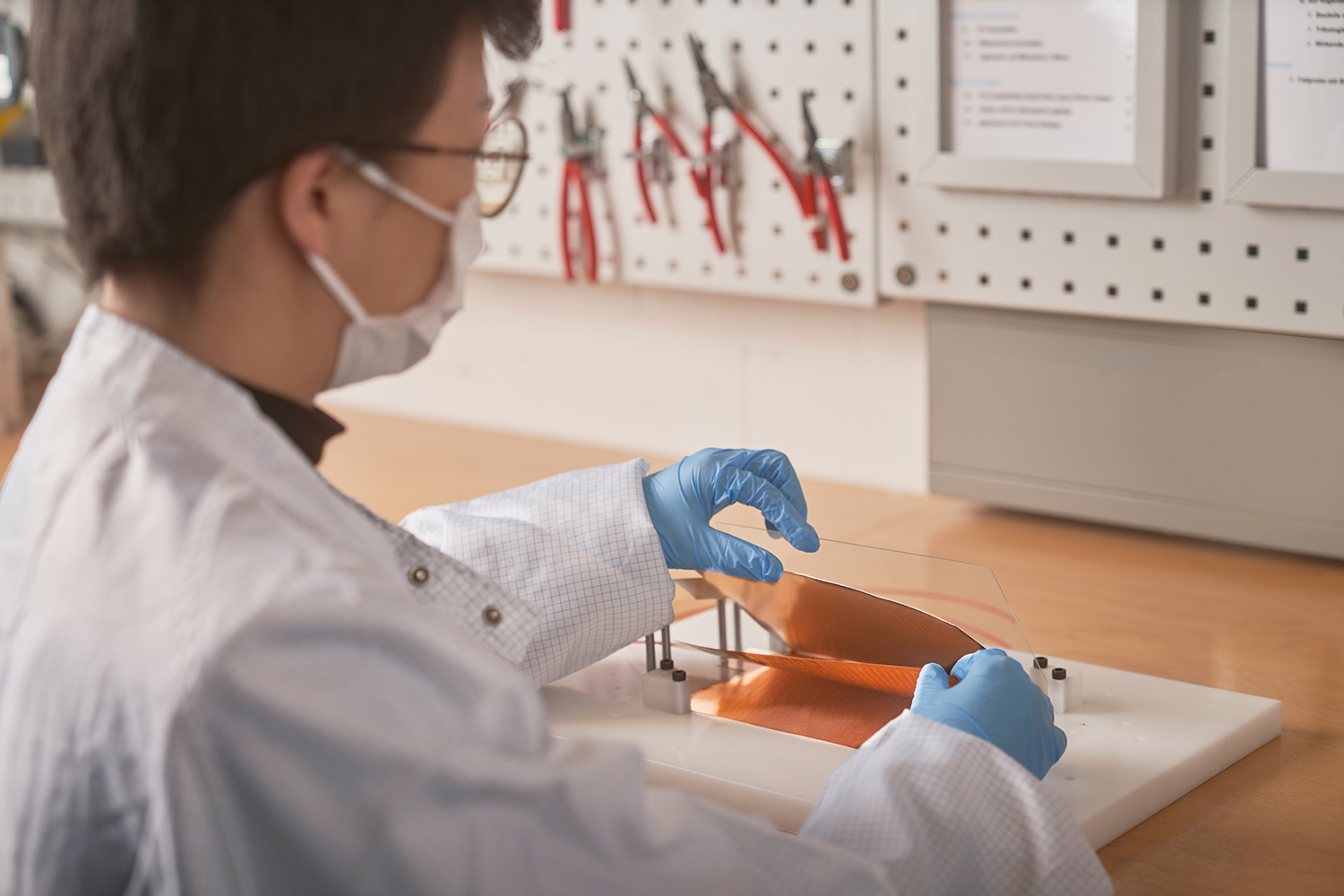
A BEM from ZeNo consists of a few foils, replacement material layers and cables. At first glance, it may seem inconspicuous, but it is not. This is because the model enables something that is important for the cost-efficient and sustainable development of rechargeable batteries or battery-powered vehicles, tools or computers: physical battery tests without a battery. "With the BEM, we can implement the overall thermal design of the battery system safely, efficiently and in a resource-saving manner," explains Yunying. ZeNo can simulate almost any battery cell with a BEM. On this basis, batteries can not only be tested as individual components, but also their system integration into the end product. This allows statements to be made about the design of the thermal management, the best possible construction or the distribution of the cells.
ZeNo accelerates the development of batteries and their system integration
With purely virtual tests, only assumptions remained for many topics. Physical tests with real batteries, on the other hand, are too expensive, inefficient and resource-intensive to be used intensively at the pre-development stage. ZeNo's approach fits right in between. Its BEM enables early and cost-effective physical tests and postpones the use of real battery cells until the start of end-of-line testing - with added value for customers and the environment. The products are better, their development cheaper and more resource-efficient. This is because the battery packs are often the most expensive components in battery-powered applications. "Batteries are the lever with which the costs of electromobility can be reduced the most and sustainability can be improved even further. This starts with the development process," says Marcel.
The company is to become an agile engineering office
In terms of technology, Yunying and Marcel, who have been working together on the BEM at the IPEK - Institute for Product Development for several years, have just completed the proof of concept. It will probably be another six months before the company is formally founded. But it should certainly be a success. The two do not want their research work to end up gathering dust in some laboratory drawer, but neither do they want to start working for a large company. "We prefer to take responsibility ourselves so that we know where to find possible problems and potential for improvement," he says.
The two founders are currently still working on their doctoral projects. Their employment as scientists offers them the security they need to prepare for the spin-off. In the medium term, ZeNo aims to become a powerful engineering office that designs and manufactures BEMs or develops test procedures for a select group of customers. The foundation for success has already been laid with the innovative product. After participating in the ICM Early Ride programme, the next steps have also been prepared and the business plan has been outlined. "There are so many use cases for battery testing that ZeNo still has a lot of potential. They have already pulled an ace out of their hat at the Demo Day and will surprise us many more times," says Alexander Graf from the KIT Gründerschmiede, who coached the ZeNo team as part of the ICM Early Ride programme. What ZeNo is still missing are employees or co-founders to complement Marcel and Yunying's profile. "We are both engineering graduates. Others are certainly more familiar with the areas of marketing and economics," says Yunying. So there is still room for synergies.
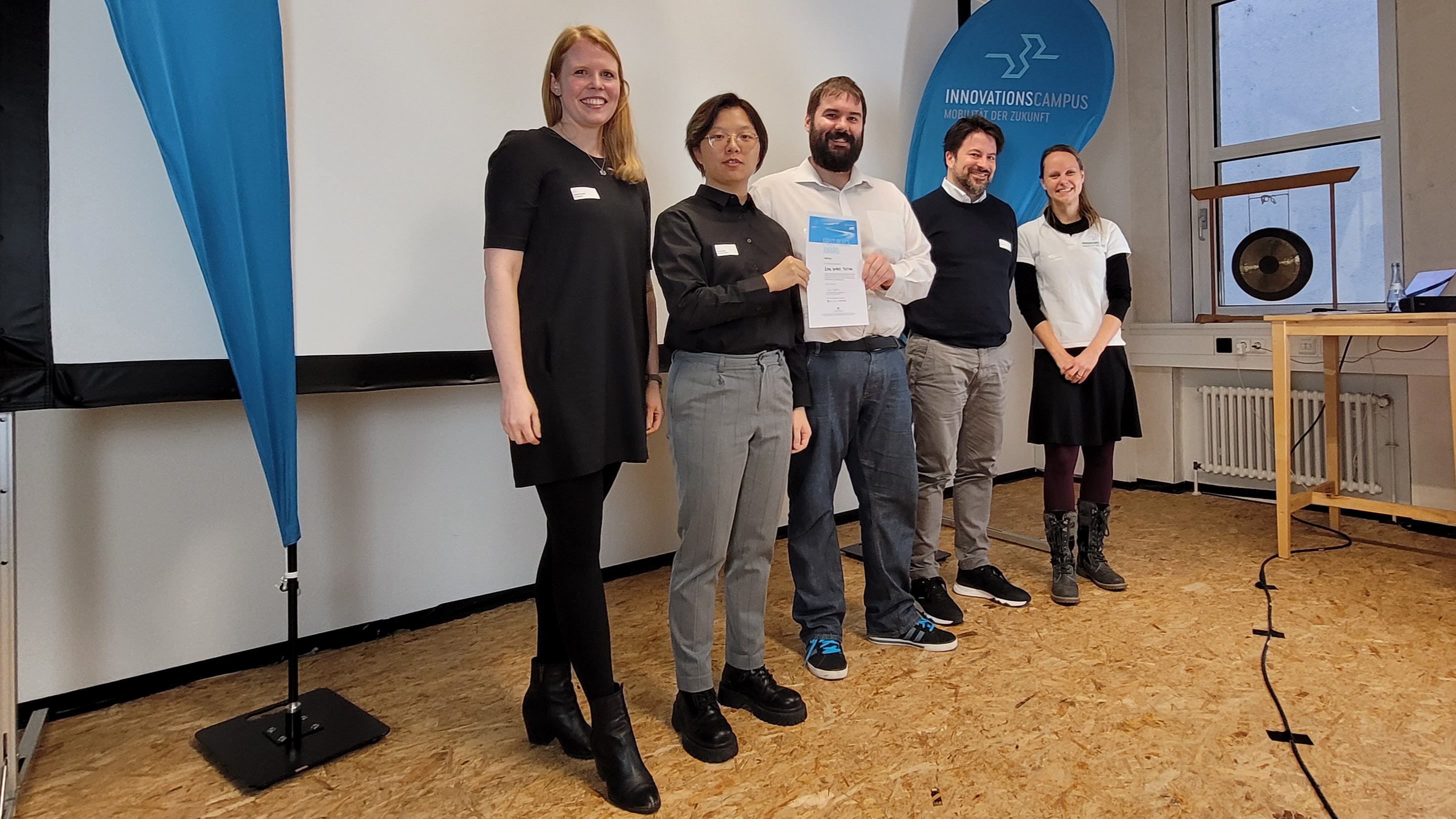
Early Ride Program
The ICM Early Ride Program is an incubator program for innovation projects from the university environment in Baden-Württemberg with a strong focus on mobility and production. We help students, doctoral candidates and post-docs from research institutions to explore the potential of their research and awaken their entrepreneurial spirit.
- Information on the Early Ride Program
- Charging Time App - The solution to range anxiety
- BEHtec - Lightweight construction with natural fibers
- Litona - Sodium ion batteries
- MoThor Batteries - Replaceable battery cells
- ZeNo Battery Testing - Battery tests without battery
- Damper Dudes - Adaptive suspension strut for motorcycles
- Dyna Charge - Dynamic charging
